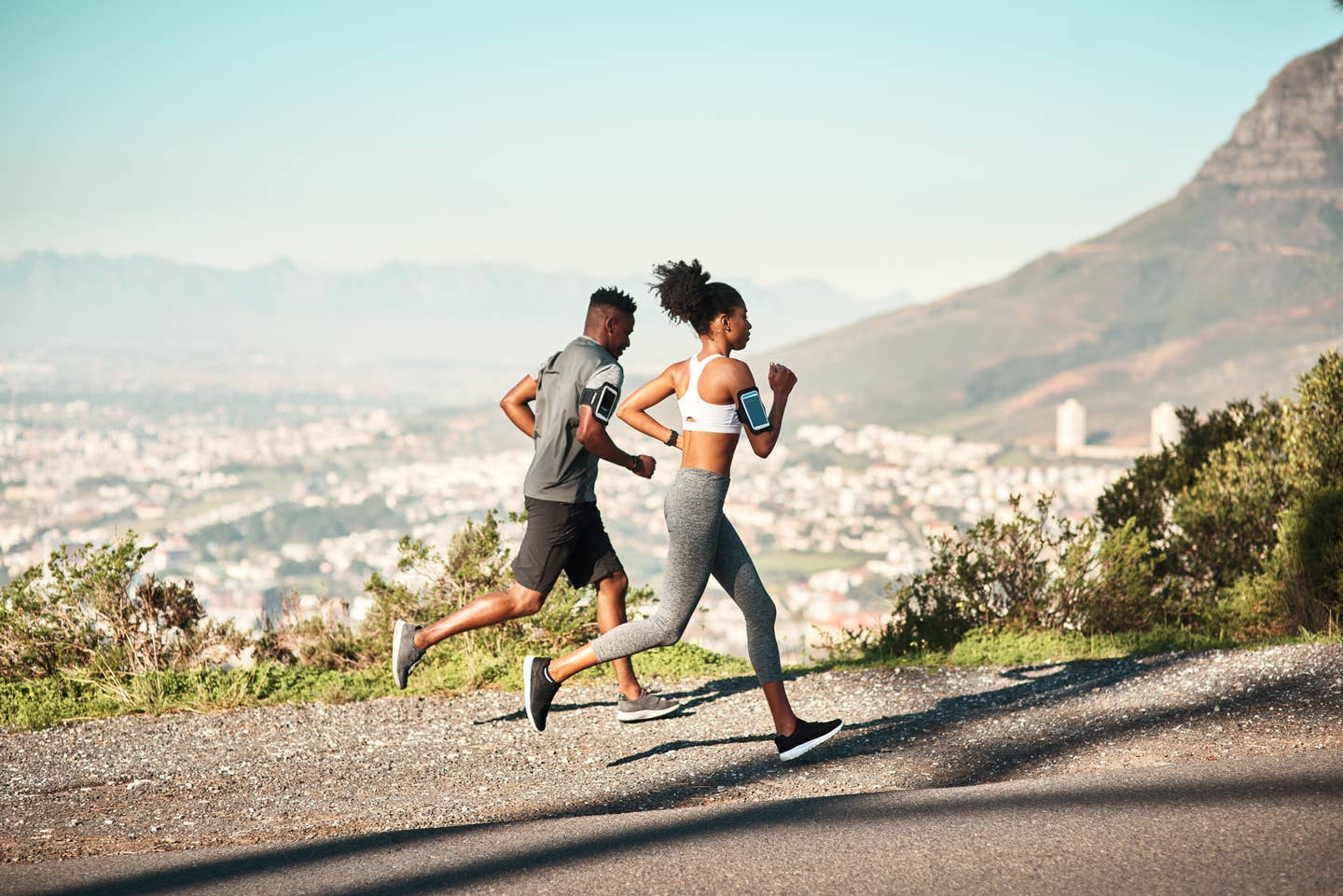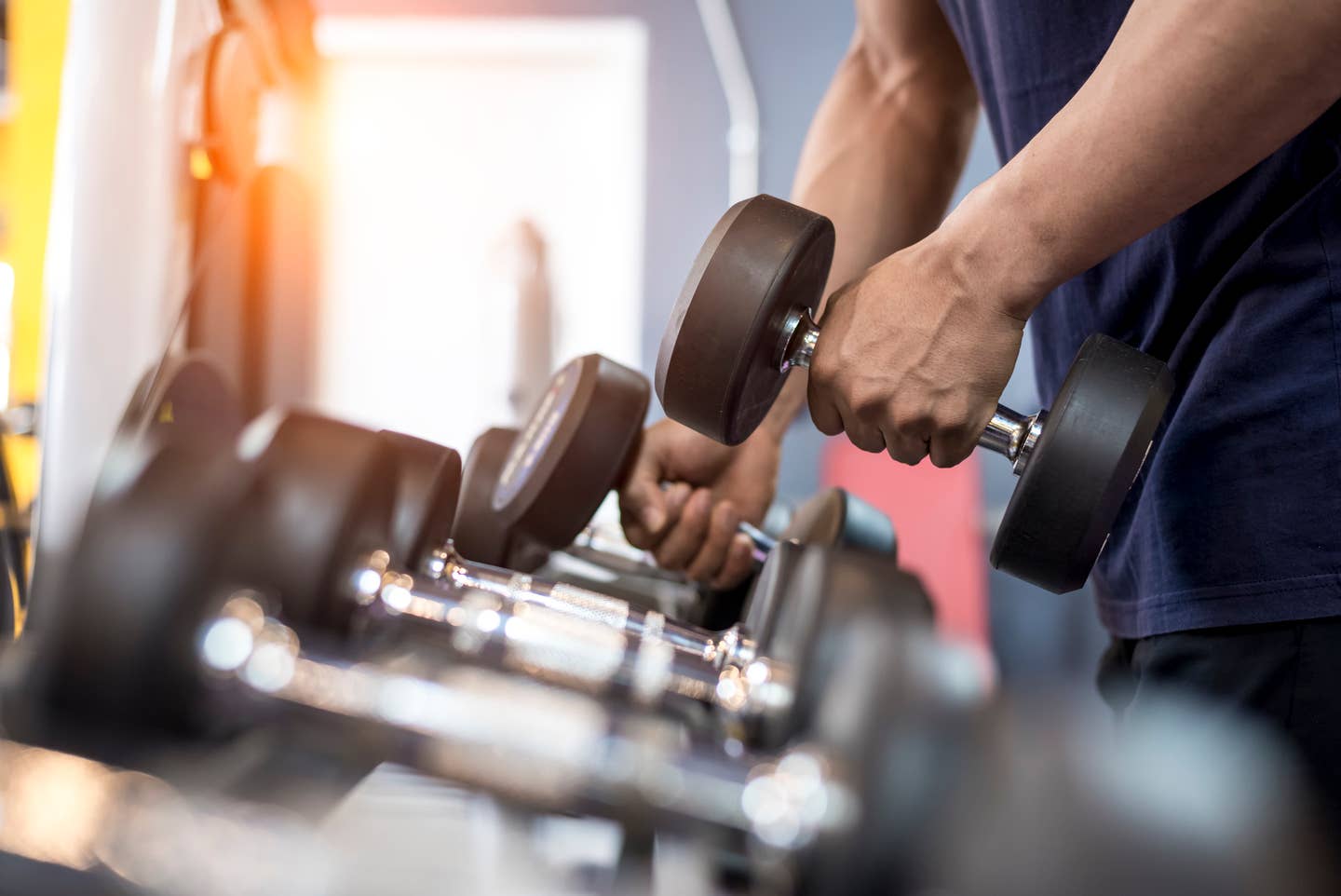
Move to The Beet: 7 Tips to Help You Get Results From Your Workouts in 25 Days
We all need a little motivation to put in that extra oomph and get more results from our workouts. What if you knew that just by thinking differently, and adding a post-workout smoothie or snack of clean plant-based protein, you could burn off more calories and reach your goals? It's true. With these seven simple tips, you're going to see the results you crave.
1. Work out first thing in the morning
When you exercise first thing in the morning, there are fewer distractions and you're less likely to get caught up in the endless to-do list and skip it. Any type of training, whether strength or cardio, should be done first thing in the morning to get the most fat-burning benefits.
Morning exercise sessions have been linked to greater productivity, lower blood pressure, and better quality of sleep. When you work out hard in the am, you'll experience what is called "after-burn" where you continue to burn calories throughout the day, according to one study. The higher the intensity and duration of exercise, the greater the afterburn, the researchers found. You can burn more calories just sitting in your chair, for up to 24 hours, when you push yourself, such as in a spin class or other high-intensity workout. The key is to go hard enough that you raise your heart rate and use more oxygen. That means you'll burn more later.
Another perk of an early sweat session is that your body wants to naturally eat healthier throughout the day. In one study, students followed a 15-week exercise program and recorded their eating habits over time. Those who stayed on track with their workout plans also made healthier food choices, "eating less red meat and fried foods," which allowed them to lose weight, according to the study published in the International Journal of Obesity.
2. Listen to an upbeat playlist that will make you want to run faster
Pressing play on your favorite playlist when you go for a run or hop on the machine of your choice (the elliptical or spin bike) almost feels innate, yet, there's a reason why it works.
"Listening to music while exercising doesn't just relieve boredom—it can help improve the quality of your workout by increasing your stamina and putting you in a better mood," according to a report on the research in the National Center For Health Research.
In particular, music that is synchronized with your exercise is shown to have physical and psychological effects since you are likely to keep pace with the beat of the song. In a study that looked at the effect of music on treadmill speed, fast-paced music prompted participants to increase their pace and go longer, without becoming any more tired!
3. Have an accountability partner
Sign up a friend, co-worker, sister, or significant other, so you can partner on your goals. When you do a workout program together, you're more accountable to yourself and the other person, so you're both likely to reach your goals and get to a higher fitness level. The bottom line is that when you know someone else is watching you or waiting for you at your designated spot, the bar gets raised. You won't blow it off and you will meet that expectation.
In a study published in the Journal of Health Communication, professors from North Carolina State University conducted a study with 704 individuals enrolled in a 15-week synchronous online weight-loss program to determine the effectiveness of a 'the buddy benefit. The research showed that the 54 percent of participants who chose buddies lost more weight and inches off their waists than the 46 percent who went it alone. Buddy up!
4. Refuel after your workout with a plant-based protein-filled smoothie
After you work out, consuming protein is an important part of your fitness plan to help rebuild strong muscles. According to a review study by several sports nutritionists published in the National Library of Medicine, if you take in protein within 3 hours post-workout, those amino acids will stimulate robust increases in muscle protein synthesis. In addition, the combination of eating a complex carbohydrate (like a banana) and some protein (you can add power to your water bottle) "allow for enhanced recovery and tissue repair following high-volume exercise," the study found. That means that if you're hitting the weights or doing a HIIT class for longer than an hour, your muscles need to refuel so give your body something to burn, and you'll build muscle faster.
Not sure where to get clean, healthy, animal-free protein, check out The Beet's list of top foods with the most protein.
5. Hydrate before and after your workout
Basically, you can never have to much water when you're working out. Okay for every rule there is an exception since endurance athletes need to replace their electrolytes, the sodium and potassium lost during long hot outdoor sweat sessions, but for the most part, everyone else needs more. The American Council on Exercise recommends drinking17 to 20 ounces of fluid, 2 to 3 hours before working out; 8 ounces within 30 minutes before starting your workout, and 7 to 10 ounces, every 20 minutes while exercising, plus 8 more ounces after you finish. Here's the way to think of it: A water bottle every hour before, during, and after your workout.
Cold water is better than room temperature, studies find: Athletic performance is improved by cold water, research found: In a study of 45-year-old men, subjects were divided into two groups and given cold and room temperature water after they completed a 60-minute workout. The group that drank the cold water kept their body temperature from overheating and this meant they improved their performance measures significantly over those who drank room temperature water. The results suggest that if you're training for a marathon or triathlon, or any other long-distance endurance event, especially in warm weather, drinking cold water can help you reach that time goal.
6. Upgrade your sneakers every 300 miles to prevent joint pain and injuries
Want a new pair of kicks? Running 300 miles is a healthy excuse. It's easier to get to that mileage number than you might think... especially if you're training for a 10K or another event. Repetitive motion and impact injuries like stress fractures and lower body pain (from the hips down) can start to rear up if you're running on ancient or over-used treads, since the foam filling in those sneakers wear out over time, even if they just sit in the back of your closet and get dried out or begin to crack. It's time for a new pair. And the $100 spent on a top-quality training shoe is less than what you're in for if you do have to head to the sports medicine clinic.
If you have any knee or hip or ankle or foot pain, chances are you are running on worn-out treads. Most running shoes are designed to last 300 miles and not more than that. So if you put in 10 to 20 miles a week you need to change out your shoes at least twice a year. A good rule of thumb is to swap your running shoes with a new pair after 300 miles to avoid joint pain caused by overused shoes that lost their cushioning.
7. Avoid exercising within a few hours of going to bed
Working out later in the day conflicts with your sleeping schedule, and the closer you get to bedtime the more this is true. If you haven't gotten it done by dinner, just skip it since you're better off getting a good night's sleep and hitting it in the morning. In a study published by the European Journal of Sports Science, a group of professors at Central Queensland University examined the effect of moderate to intense exercise in the evening had an inverse effect on the sleep of healthy young males.
In the study, they asked students to work out for 90 minutes in the post-supper timeframe and then monitored their sleep. The late sessions robbed them of their deepest restful sleep, so in just about every case you're better off getting it done early or telling yourself this is a much-needed rest day and focusing on recovery and rest. Trust us: You'll feel better with "fresh legs" tomorrow rather than dragging yourself around a workout on little sleep.
Want to invite a friend to enjoy the 25 Day Move to The Beet Program? Sign them up here!
More From The Beet






